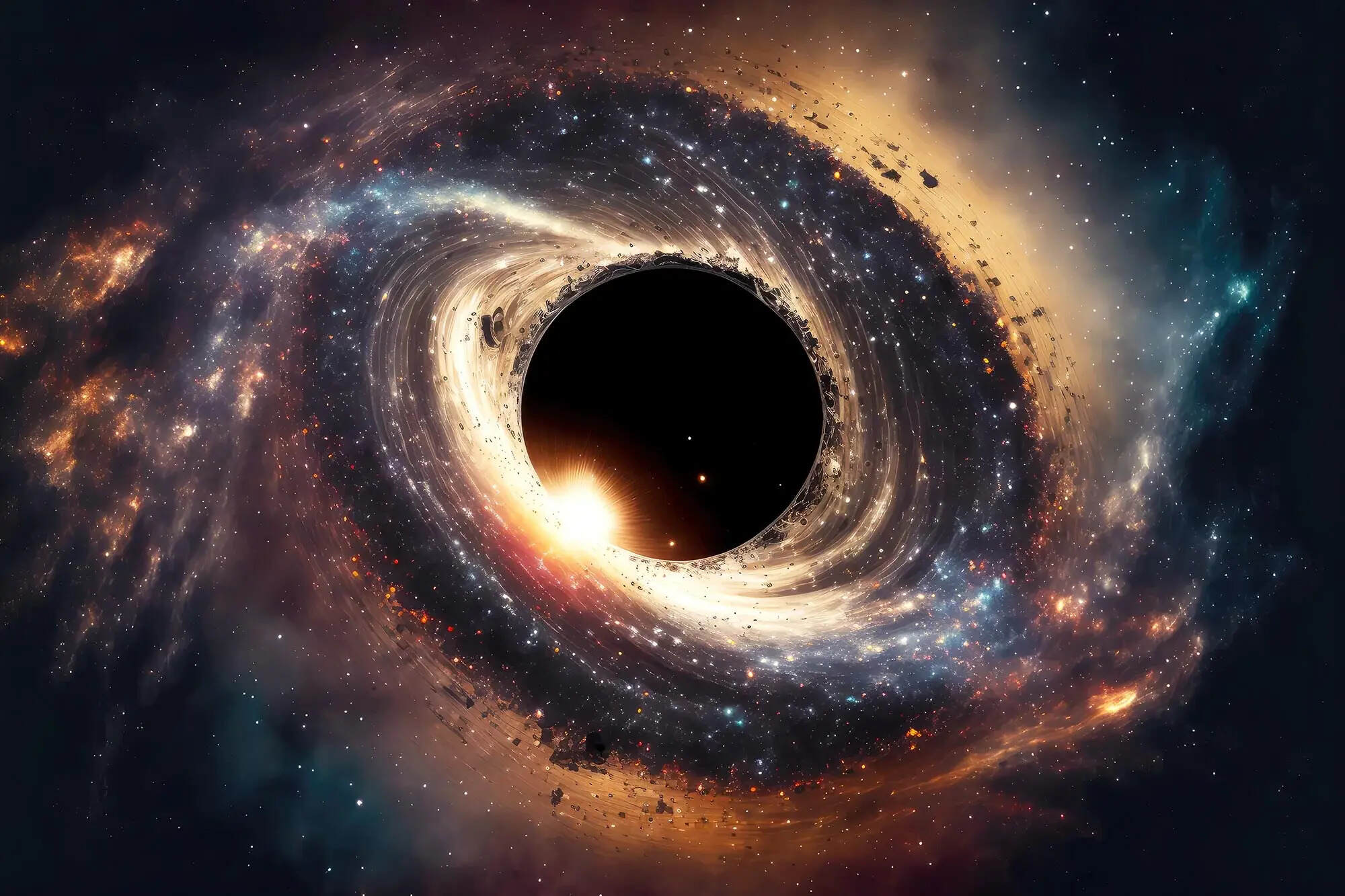
What exactly is a black hole? Imagine a place in space where gravity is so strong that nothing, not even light, can escape. That's a black hole! These cosmic giants form when massive stars collapse under their own gravity. They might sound like something out of a sci-fi movie, but black holes are very real and incredibly fascinating. Scientists study them to understand the mysteries of the universe, from the nature of time to the behavior of matter under extreme conditions. Ready to dive into some mind-blowing facts about black holes? Buckle up, because this journey into the unknown is going to be epic!
What Are Black Holes?
Black holes are among the most mysterious and fascinating objects in the universe. They possess gravitational pulls so strong that nothing, not even light, can escape. Let's dive into some mind-blowing facts about these cosmic enigmas.
- Black holes form when massive stars collapse under their own gravity at the end of their life cycles.
- The boundary around a black hole, beyond which nothing can escape, is called the event horizon.
- Inside the event horizon, the escape velocity exceeds the speed of light.
- Black holes can be detected by observing the behavior of nearby stars and gas.
- They come in different sizes, from small stellar-mass black holes to supermassive black holes found at the centers of galaxies.
- The largest black hole discovered so far is estimated to be 40 billion times the mass of our Sun.
How Do Black Holes Affect Their Surroundings?
Black holes have a significant impact on their surroundings, influencing the behavior of nearby matter and even entire galaxies.
- Black holes can pull in nearby matter, forming an accretion disk of gas and dust spiraling into the black hole.
- As matter falls into a black hole, it heats up and emits X-rays, making black holes detectable by X-ray telescopes.
- Supermassive black holes at the centers of galaxies can influence the formation and evolution of stars and galaxies.
- Some black holes emit powerful jets of particles that can travel at nearly the speed of light.
- These jets can affect the interstellar medium and regulate star formation in galaxies.
- Black holes can merge with other black holes, creating gravitational waves that ripple through space-time.
Theories and Discoveries About Black Holes
Scientists have developed various theories and made groundbreaking discoveries about black holes over the years.
- Albert Einstein's theory of general relativity predicted the existence of black holes.
- The first black hole ever discovered was Cygnus X-1, identified in 1964.
- In 2019, the Event Horizon Telescope captured the first-ever image of a black hole's event horizon.
- Stephen Hawking proposed that black holes can emit radiation, now known as Hawking radiation.
- Hawking radiation suggests that black holes can eventually evaporate over time.
- The information paradox questions whether information that falls into a black hole is lost forever or can be recovered.
Fun and Surprising Facts About Black Holes
Black holes are not just serious scientific phenomena; they also have some fun and surprising aspects.
- Black holes can "spaghettify" objects, stretching them into long, thin shapes due to intense tidal forces.
- Time behaves differently near a black hole, with time slowing down as you approach the event horizon.
- Some black holes are "naked singularities," lacking an event horizon, though their existence is still theoretical.
- Black holes can have magnetic fields, which can influence the behavior of nearby matter.
- The Milky Way galaxy has a supermassive black hole at its center, known as Sagittarius A*.
- Black holes can "burp" after consuming large amounts of matter, releasing energy in the form of radiation.
Black Holes in Popular Culture
Black holes have captured the imagination of writers, filmmakers, and artists, becoming a staple in popular culture.
- The movie "Interstellar" features a scientifically accurate depiction of a black hole, thanks to physicist Kip Thorne's input.
- Black holes often appear in science fiction as portals to other dimensions or time travel devices.
- The concept of black holes has inspired numerous books, TV shows, and video games, sparking curiosity about the cosmos.
- Black holes are a popular subject in art, symbolizing mystery, power, and the unknown.
The Final Frontier
Black holes remain one of the most fascinating and mysterious phenomena in the universe. From their immense gravitational pull to their ability to warp time and space, these cosmic giants challenge our understanding of physics. Scientists continue to study black holes, hoping to unlock more secrets about their nature and the universe itself. Whether it's the supermassive black holes at the centers of galaxies or the smaller stellar-mass ones scattered throughout, each discovery brings us closer to understanding these enigmatic objects. As technology advances, who knows what new facts we'll uncover? One thing's for sure: black holes will keep captivating our imaginations and pushing the boundaries of science. Keep an eye on the stars; the next big discovery might be just around the corner.
Was this page helpful?
Our commitment to delivering trustworthy and engaging content is at the heart of what we do. Each fact on our site is contributed by real users like you, bringing a wealth of diverse insights and information. To ensure the highest standards of accuracy and reliability, our dedicated editors meticulously review each submission. This process guarantees that the facts we share are not only fascinating but also credible. Trust in our commitment to quality and authenticity as you explore and learn with us.


